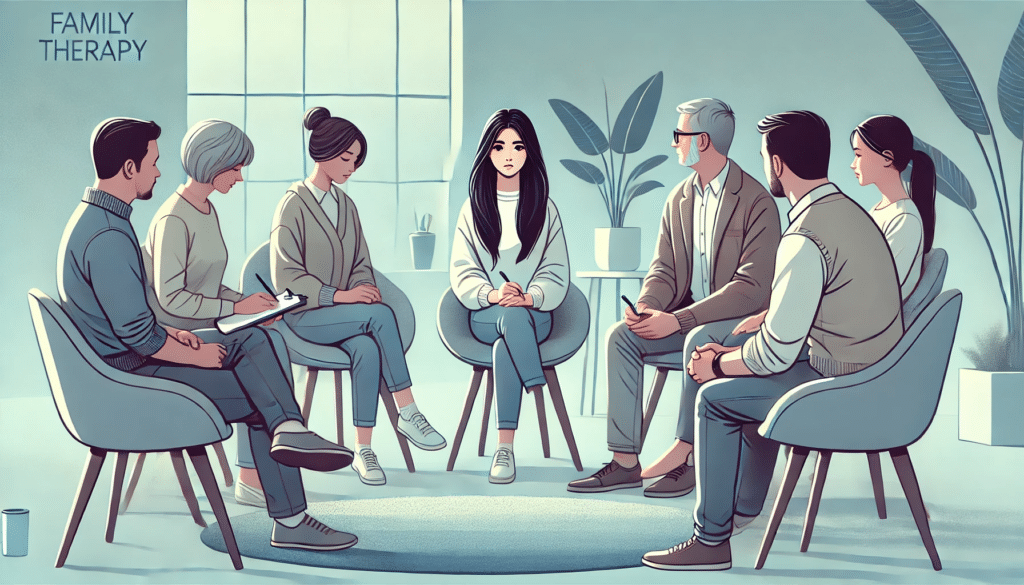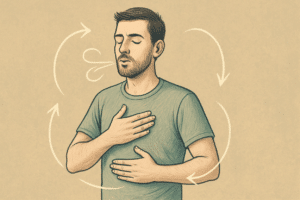Key Takeaways
- Childhood trauma can have long-lasting effects on mental health, physical health and emotional well-being, increasing the risk of conditions like anxiety, depression and chronic illnesses.
- Unresolved trauma often leads to heightened emotional reactivity, trust issues, and difficulties in forming and maintaining healthy relationships in adulthood.
- Evidence-based therapies such as Cognitive Behavioral Therapy (CBT), Eye Movement Desensitization and Reprocessing (EMDR), and trauma-focused therapy have been proven to help process trauma and reduce its symptoms.
- Structured activities like mindfulness, journaling, and strengthening social support systems are vital strategies for overcoming the effects of trauma and fostering long-term recovery.
- A Mission for Michael (AMFM) offers personalized, evidence-based treatment for trauma in a compassionate and supportive environment, helping individuals move past childhood trauma and build brighter futures.
Childhood Trauma’s Impact on Adulthood
Childhood trauma can affect mental and physical health, as well as the ability to think and the overall well-being. People who had a tough time growing up are more likely to have mental health problems.
The ACE Study found that almost two-thirds of participants had a traumatic childhood, which caused mental health issues in adulthood. Trauma affects the brain, especially areas that regulate emotions and thinking.
Recognising Emotions
Childhood trauma can cause strong, unpredictable emotions in adulthood. These responses are often caused by situations or interactions that remind us of past trauma. For example, strong feelings may come up for no reason.
Research highlights the link between childhood trauma and heightened emotional reactivity in adulthood, which often complicates relationships and work environments. Recognizing such patterns is essential to understanding how unresolved trauma continues to shape adult life.
| A Mission For Michael: Expert Mental Health Care Founded in 2010, A Mission For Michael (AMFM) offers specialized mental health care across Southern California, Washington, and Virginia. Our accredited facilities provide residential and outpatient programs, utilizing evidence-based therapies such as CBT, DBT, and EMDR. Our dedicated team of licensed professionals ensures every client receives the best care possible, supported by accreditations from The Joint Commission and the California Department of Health Care Services. We are committed to safety and personalized treatment plans. Start your recovery journey with AMFM today! |
Physical Health Connections
Common Health Issues
Adults who experienced trauma as children are more likely to develop chronic health conditions, including heart disease, diabetes, and autoimmune disorders.
The ACE Study established a clear link between higher ACE scores and a greater prevalence of chronic illnesses, often attributed to prolonged stress and inflammation
Sleep Disturbances
Sleep disturbances are another frequent consequence of childhood trauma. Many adults report difficulties such as insomnia or recurrent nightmares, which negatively affect their ability to concentrate and function during the day. Not getting enough sleep can affect mental health and overall well-being too.
Psychological Effects

Anxiety and Depression Symptoms
Childhood trauma has significant psychological consequences that can persist into adulthood. Anxiety and depression are common outcomes, often presenting as persistent worry, sadness, or hopelessness.
These feelings may also come with physical symptoms, such as headaches or fatigue, which interfere with daily life, relationships, and work.
Trust Issues
It’s also common for people to have trust issues, especially if they had their trust broken when they were young. This can cause them to question motives and make it difficult to form and maintain meaningful relationships.
PTSD Risk
For some, the trauma leads to Post-Traumatic Stress Disorder (PTSD), characterized by flashbacks, nightmares, avoidance of certain triggers, and heightened arousal. Recognizing these signs and understanding their roots in childhood experiences is crucial for seeking appropriate treatment.
Coping Mechanisms
Healthy vs. Unhealthy Coping
Healthy coping mechanisms include regular exercise, mindfulness practices like meditation or yoga, and journaling to process emotions constructively.
In contrast, unhealthy coping mechanisms, such as overeating or withdrawing from social interactions often perpetuate distress and hinder recovery. Recognizing and replacing these patterns with healthier alternatives is vital for long-term healing.
Significance of Support Systems
People who have strong social support and access to professional help tend to have better psychological outcomes and are more resilient.
Friends, family and support groups can be a great source of emotional and practical assistance, while therapists can provide professional tools to help you process trauma and develop healthier strategies.
Seeking Professional Help

Types of Therapy Available
Effective therapeutic approaches for trauma include Cognitive Behavioral Therapy (CBT), Eye Movement Desensitization and Reprocessing (EMDR), and trauma-focused therapy. These methods are evidence-based and shown to significantly alleviate symptoms associated with childhood trauma. Working with a mental health professional helps identify the approach best suited to individual needs.
Benefits of Counseling
Counseling provides a secure environment to process emotions tied to trauma. It equips individuals with tools to manage symptoms, improve relationships, and enhance overall quality of life.
A Mission for Michael for Childhood Trauma and Healing Treatment

At A Mission for Michael (AMFM), we provide compassionate, evidence-based care to help individuals heal from the effects of childhood trauma. Our programs are designed to offer a comprehensive path to recovery in a safe and supportive environment.
We tailor individualized plans to meet unique needs, using proven therapeutic approaches such as CBT, EMDR, and trauma-focused therapies. These evidence-backed techniques effectively address both the psychological and physical impacts of trauma.
Our team of licensed professionals specializes in trauma recovery. With years of experience, they’re equipped to address the complex nature of childhood trauma, creating a trusting and supportive environment where you can process and heal.
Comprehensive Therapy Options
- Individual therapy for deep, personalized exploration.
- Group therapy to foster community and shared healing.
- Holistic practices such as mindfulness and grounding techniques.
Emphasis on Long-Term Resilience
We prioritize equipping individuals with the tools necessary for sustained recovery. Our programmes help you sleep better, manage stress and build healthier relationships.
Inclusive and Supportive Environment
At AMFM, we cultivate a welcoming space where you can focus on healing. From peer support groups to family counseling, we provide a community that stands with you at every step.
Simplified Insurance Support
We work with the big players in the industry to make sure you get the best insurance coverage. If our services aren’t quite what you’re looking for, we’ll help you find someone who can better meet your needs.
Contact us today to take the first step toward lasting healing and recovery.
Start your recovery journey with AMFM today.
Frequently Asked Questions
What are the common effects of childhood trauma in adulthood?
Childhood trauma can lead to mental health challenges such as anxiety, depression, and PTSD, along with physical health issues like heart disease and chronic inflammation. It can also affect emotional regulation and relationships, making it difficult to build trust and maintain connections.
How do emotional responses in adulthood indicate unresolved trauma?
Adults who have not resolved childhood trauma frequently exhibit intense and unpredictable emotional responses, such as overwhelming anger or sadness, which may be triggered by events that evoke memories of past experiences.
What treatments work for trauma?
The three principal evidence-based therapeutic modalities for trauma are cognitive behavioural therapy (CBT), eye movement desensitisation and reprocessing (EMDR) and trauma-focused therapy. Such resources assist individuals in coping with traumatic experiences.
Why is resilience important for trauma recovery?
Resilience involves developing the ability to recover from adversity. Taking part in regular exercise, mindfulness practices and problem-solving skills training can help people to regulate their emotions and tackle challenges head on.
What makes A Mission for Michael the best choice for trauma treatment?
A Mission for Michael (AMFM) employs an evidence-based approach to care that is designed for the specific needs of each individual. Our expert clinical team offers a range of therapy options in a supportive environment to help you recover. Contact us to start your journey to healing.









